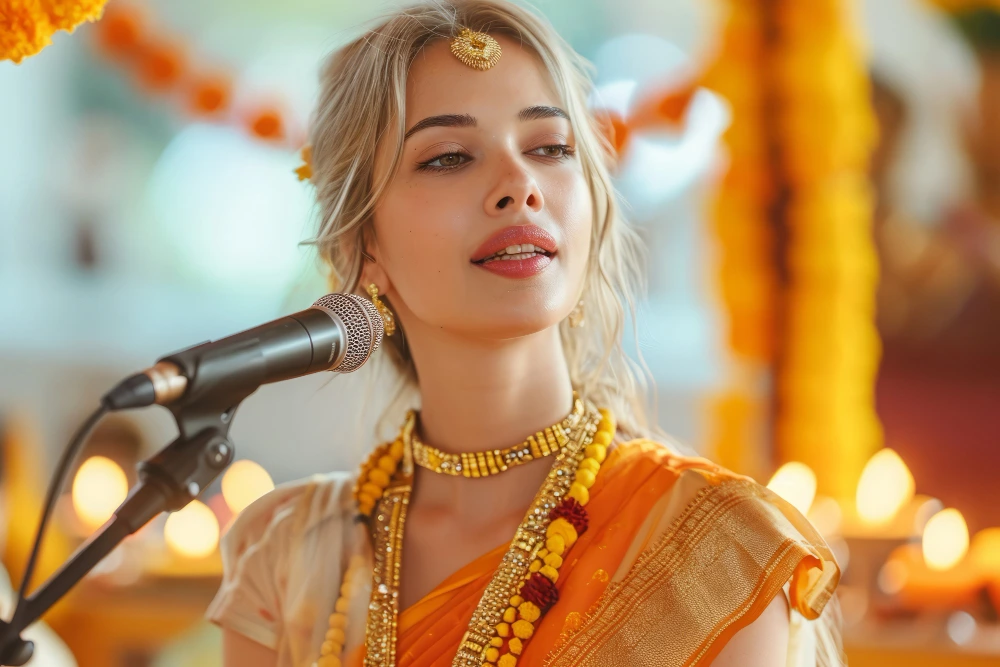All Topics
- Alchemizing Music Concepts for Students
- Artist Spotlight
- Artium Maestros
- Artium News
- Carnatic Music
- Devotional Music
- Editorials by Ananth Vaidyanathan
- Film Music
- Guitar
- Indian Classical Music
- Insights
- Instruments
- Karaoke Singing
- Kids Music
- maestros
- Music Education
- Music for Kids
- Music Industry
- Music Instruments
- Music Theory
- Music Therapy
- Piano
- Telugu Film Music
- Time Theory
- Tools
- Uncategorized
- Vocal Singing
- Vocals
Why Ghazal Singing Continues to Captivate Audiences Around the World?
Why Ghazal Singing Continues to Captivate Audiences Around the World?

Table of Contents
As famously quoted by the poet Henry Wadsworth Longfellow, “Music is the universal language of mankind” Ghazal has acquired a global audience and captivated them for centuries. Ghazal is a form of poetry that conveys strong emotions and generally revolves around the theme of spiritual and romantic love. Influenced by Sufi poetry, the ghazal lyrics are usually in Urdu, Persian and Arabic language. There used to be “ghazal mehfils” where people used to come together and perform ghazal singing.
What is Ghazal Singing?
Ghazal singing, famously known as ‘Ghazal Gayaki’, is an ancient form of singing with its origin in Arabia. It spread widely in the South Asian region during the 12th century in the courts of the Islamic sultanate. Several poets such as Rumi, Hafez, and Saadi wrote beautiful ghazals, which were performed by professional musicians. These artists were widely respected and appreciated for their craft. One of the most famous singers of the 12th century was Amir Khusro, a poet and musician who worked in the courts of several rulers.
Ghazal singers have the power to move their audience emotionally and influence them to explore their intense feelings. The structure of a ghazal consists of a series of rhythmic couplets, each having a consistent metre and length. In India, Ravi Shankar, Begum Akhtar and Ustad Mehdi Hassan are often credited for popularising ghazal singing among the masses.
Today, it has evolved greatly as the lyrics have become much simpler and are understandable to a larger audience. The use of Western musical instruments by ‘Jagjit Singh’ has produced some brilliant music and led to a tremendous increase in the number of people listening to ghazals. The following of ghazal music has crossed several boundaries and even motivated numerous online music classes in India to provide online ghazal classes.
The Popularity of Ghazal Singing
The popularity of ghazal singing has grown immensely in countries across the globe and it can be attributed to multiple factors. Some of them are as follows:
- Cultural Significance
Deeply rooted in the cultural traditions of South Asian countries, especially India and Pakistan, it has become an integral part of their music and heritage. Along with it, ghazal music has been passed from generation to generation in several musical gharanas. People often look back at ghazals to understand and appreciate the intellectual capacity of writers of that period and seek inspiration from it.
- Emotional Appeal
Love, heartbreak and loss are prominent themes in ghazals. People from different walks of life resonate with them, and it creates emotional resonance. The lyrics and melodies are designed to convey such heavy emotions and form a connection with the audience. People often link their certain memories with ghazals, and it becomes a medium for them to move past those experiences.
- Versatility
The versatility of the ghazal has promoted its growth among various groups, cities and countries. With the fusion of other genres and Western musical elements, people have created different versions of ghazals to suit the preferences of a wider audience. It has also been adopted in other languages and cultures and truly made ghazal a global art form.
- Musical Melodies and Complexities
Ghazal music is highly regarded for its intricate melodies that have the power to transcend the audience and deliver a remarkable experience. The magical combination of profound lyrics and enchanting music is hard to find in any other genre of music. It has all the qualities to strike the right chord with the listener and bridge a relationship with them forever.
- Timeless Quality
From talking about universal themes to bringing new techniques and evolving with time, the ghazal has several positive facades, which have made it timeless. Amidst all the changes, it remains connected to its roots and has preserved its rich cultural heritage. More importantly, the wisdom imparted in the lyrics continues to be relevant even today and has the same impact on the audience.
Influence on Other Forms of Music
Ghazal has greatly influenced various forms of Indian and Western music. It has increased the use of instruments like tabla and harmonium today in musical compositions as a number of artists are creating music taking inspiration from ghazal. Bollywood music has been significantly inspired by ghazals. Jagjit Singh, Mohammad Rafi, Hariharan and Pankaj Udhas, to name a few, are some of the prominent Bollywood singers who have mastered the art of singing ghazal.
In recent years, A. R. Rahman, a renowned Indian music composer and winner of multiple National and International awards, has used the ghazal style of singing in numerous songs such as ‘Kun Faya Kun’, ‘Khwaja Mere Khwaja’, ‘Piya Haji Ali’, and many more. Zayn Malik, a popular international singer, has stated his album ‘Mind of Mine’ was inspired by numerous genres, including ghazals. Many jazz musicians have adopted the techniques of ghazals into their music, such as the slow and melodic lines and the constant improvisation.
These songs have immensely resonated with the audience and are etched in their memory for years. The impact of ghazal on film, western and jazz music has been enormous and integral in the creation of new and amusing songs. It is constantly inspiring new artists to create music that bridges the gap between the traditional and modern world.
Conclusion
Ghazal has achieved global prominence, and Indian artists have played a key role in its growth. More than music, the ghazal is a part of our rich and diverse cultural heritage and has shaped several new forms of music as well as enhancing the existing one. Learning ghazal is an ode to our ancestors and other numerous brilliant artists who have spent years building this art form.
At Artium Academy, we are providing a ghazal course for everyone to learn and keep the genre alive. We have become an easy solution for people tired of searching for how to learn singing online. Our ghazal course, designed by Sonu Nigam, is divided into three levels: Preparatory, Intermediate and Advanced. We offer vocal exercises for beginners, exclusive masterclasses by industry legends, 1:1 live classes by certified music teachers and many more facilities to enhance your overall learning experience!







